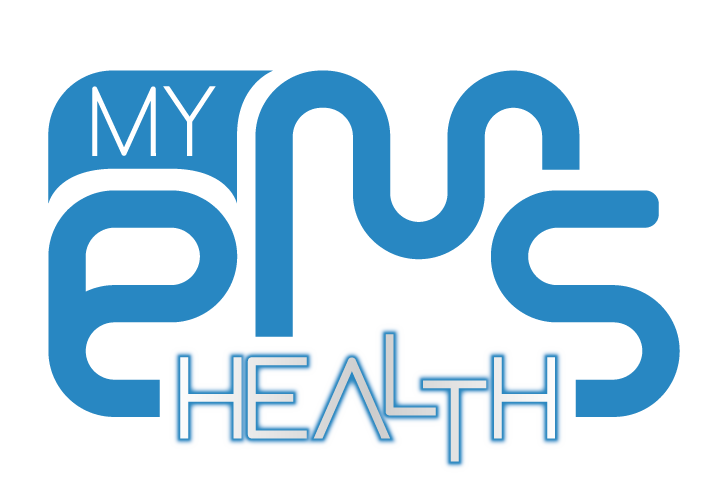Brain Fog Treatment
Key Takeaways
Brain fog symptoms can manifest in various ways and impact daily productivity.
Identifying potential causes is crucial for implementing effective treatment plans to alleviate symptoms and restore cognitive function.
Lifestyle changes along with incorporating brain stimulation therapy can help combat brain fog.
While there are no specific medications approved for brain fog, certain medications prescribed for underlying conditions may indirectly alleviate symptoms and improve cognitive function.
Exercises such as physical activities, brain-challenging activities, mindfulness practices, adequate sleep, and a balanced diet are essential components of maintaining optimal brain health offering a holistic approach to enhancing cognitive function.
Brain Fog Symptoms
Brain fog symptoms often can manifest in various ways affecting cognitive function and overall mental clarity. Individuals may experience decreased memory performance, difficulty concentrating, and mental fatigue. These symptoms can be frustrating and impact daily productivity. Some individuals describe brain fog as feeling "foggy" or having trouble processing information efficiently. If you are consistently experiencing these symptoms, it may be a sign of an underlying issue affecting brain function.
To elaborate further, brain fog may also lead to memory problems, affecting your ability to recall information or events. Additionally, cognitive impairment such as trouble with logical reasoning or decision-making, can be a result of persistent brain fog. It's important to identify and address these symptoms to improve cognitive performance and overall well-being.
When experiencing brain fog, it's essential to consider potential causes, such as lack of sleep, chronic fatigue syndrome, or even medical conditions like dementia. Understanding the root cause of your brain fog can help in implementing an effective treatment plan to alleviate these symptoms and restore cognitive function.
Cause of Brain Fog
The causes of brain fog are varied and can include factors like lack of sleep, stress, covid-19, dietary deficiencies, or even underlying medical conditions. People may have brain fog due to disruptions in brain function, impacting cognition and mental clarity. Common causes of brain fog can be linked to lifestyle choices, such as poor diet or inadequate sleep.
Moreover, cognitive impairment can result from prolonged exposure to stress or chronic illnesses like insomnia. In some cases, brain fog may be a symptom of more serious conditions like anxiety and depression, Alzheimer's disease or cognitive decline. Understanding the cause of your brain fog is crucial in developing an effective treatment plan to address the root issue, improve cognitive function, and increase the quality of your life.
It's essential to note that brain fog is not a medical condition itself but rather a symptom of an underlying issue affecting the body's cognitive processes. By pinpointing what's causing your brain fog, you can take proactive steps to improve brain function and mental clarity.
If you want to find out more about leading causes and symptoms of brain fog, we wrote an extensive article you can read here:
Unraveling the Mystery of Brain Fog: Understanding Potential Causes.
Can Brain Fog Be Cured?
Brain fog can be a challenging condition to deal with, but with the right approach, it is possible to alleviate symptoms and improve cognitive function. Depending on the underlying cause of your brain fog, various treatment options may be available. Lifestyle changes, such as improving sleep quality, managing stress, and maintaining a healthy diet, can help combat brain fog.
Furthermore, incorporating brain fog supplements like vitamin B12 or engaging in brain stimulation therapy may also aid in enhancing cognitive performance. In severe cases where brain fog is linked to medical conditions like dementia or chronic fatigue syndrome, consulting with a healthcare provider for personalized treatment is essential.
While there is no one-size-fits-all cure for brain fog, a comprehensive approach that addresses the root cause of the symptoms can significantly improve brain function and overall cognitive health and wellness.
Brain Fog Supplements
A variety of brain fog-related supplements claim to offer relief by targeting cognitive function and mental clarity. These supplements often contain ingredients such as vitamins, minerals, antioxidants, and herbal extracts, all purported to support brain health and function. For example, supplements like Ginkgo Biloba, Omega-3 fatty acids, Bacopa Monnieri, and Rhodiola Rosea are commonly touted for their potential to enhance memory, focus, and cognitive performance. Additionally, nutrients like Vitamin B12, Vitamin D, and magnesium are believed to play vital roles in brain function and may help alleviate symptoms of brain fog. By providing essential nutrients and promoting healthy brain circulation, these supplements aim to slow down and even reverse the effects of brain fog allowing individuals to regain previous levels of memory and concentration. However, it's important to note that the efficacy of these supplements can vary from person to person. Consulting with a healthcare professional is advisable before incorporating them into one's regimen.
Meds For Brain Fog
While there are currently no specific medications approved solely for the treatment of brain fog, certain medications prescribed for underlying conditions may indirectly alleviate its symptoms. For instance, medications used to manage conditions such as depression, anxiety, attention deficit hyperactivity disorder (ADHD), thyroid disorders, and autoimmune diseases may help improve cognitive function thus addressing some aspects of brain fog. Additionally, stimulant medications like methylphenidate and modafinil are sometimes prescribed off-label to enhance focus and concentration in individuals experiencing cognitive impairment. It is important to recognize that these medications come with potential side effects and risks, and they may not be suitable for everyone. Seek medical attention as thorough evaluation by a healthcare professional is essential to determine the most appropriate treatment approach for managing brain fog symptoms.
What Exercises Are Good for Brain Fog?
Several exercises can help alleviate brain fog and enhance cognitive function. Physical exercise such as aerobic activities like brisk walking, running, or cycling has been shown to increase blood flow to the brain, promote the release of neurotransmitters like dopamine and serotonin, and stimulate the growth of new brain cells. All of the above can help improve memory and concentration. Additionally, activities that challenge the brain, such as puzzles, Sudoku, crosswords, and memory games can help strengthen neural connections, improve cognitive function, and reduce the risk of symptoms getting worse even for older adults. Mindfulness practices, including meditation, deep breathing exercises, and yoga can also be beneficial for reducing chronic stress, calming the mind, and enhancing concentration. Finally, adequate sleep, a balanced diet rich in nutrients, and staying hydrated are essential components of maintaining optimal brain health and combating brain fog. Incorporating a combination of these exercises into your daily routine can help you think clearly, boost your energy levels, and alleviate the symptoms of brain fog.
Brain Stimulation Therapy
Brain stimulation has become one of the most acceptable therapeutic approaches in recent years and a powerful tool in the remedy against neurological diseases such as brain fog. Specifically, VIZR is revolutionizing the landscape of brain fog, PTSD, and sleep issues by offering a transformative approach to healing. Through its pioneering light and sound therapy, VIZR provides a non-invasive, drug-free solution to improve brain functioning ability, sleep quality, and mood serving as a much-needed "reset" for individuals grappling with daily stresses and traumas. Users have reported significant benefits within weeks, experiencing deeper sleep and a more serene mindset, even in cases where traditional medications have proven ineffective. By guiding individuals through a unique sensory journey, VIZR empowers them to navigate their healing process with confidence, making it an indispensable tool for anyone striving to reclaim their peace and well-being. As a leading provider of NeuroVizr brain stimulation and non-invasive neuroplasticity sessions in Miami, My EMS Health stands at the forefront of delivering innovative solutions for mental wellness and cognitive enhancement. Follow to Brain Stimulation Therapy page to learn more about sound and light therapy sessions and schedule your appointment.
Step into a realm of rejuvenation and revitalization at My EMS Health, Miami's premier destination for holistic wellness and brain optimization. Our cutting-edge NeuroVizr brain engagement sessions offer a transformative journey towards enhanced cognitive function and mental well-being. Immerse yourself in the innovative fusion of light and sound therapy, meticulously designed to unlock your brain's full potential and alleviate the burdens of brain fog, PTSD, and sleep issues. Experience the difference firsthand as you embark on a sensory journey tailored to empower and uplift. Don't just imagine a clearer mind – manifest it with NeuroVizr at My EMS Health where transformation begins.
FAQ
Can Physical Exercises Reduce the Symptoms of Brain Fog?
Physical exercises are a powerful tool for combating brain fog. When you get moving, you're not just working your muscles – you're giving your brain a boost too. Exercise improves blood flow and oxygen delivery to your brain, sharpens your focus, and boosts your mood by releasing those feel-good neurotransmitters.
How Do I Get Rid of Brain Fog?
To alleviate brain fog, prioritize getting enough sleep by avoiding stimulants like caffeine and screens before bed. Manage stress through relaxation techniques like brain stimulation therapy, breath work, and meditation. Maintain a healthy diet rich in vitamins and minerals like vitamin D, vitamin B12, zinc, and magnesium. Regular exercise can improve circulation and reduce stress, while engaging in mentally stimulating activities such as problem-solving, learning new skills, or playing memory games can help keep your mind sharp.
How Long Does it Take to Cure Brain Fog?
The duration of brain fog can vary among individuals typically lasting from several days to a few weeks, few months on some occasions. Taking proactive steps such as making positive lifestyle changes and prioritizing self-care, especially for your brain, can speed up the process and cause brain fog to dissappear. By maintaining these changes over time, you not only expedite the process of getting rid of brain fog but also reduce the likelihood of its recurrence ensuring a clearer and more focused mind in the long run.

